Why Texas Property Owners Are Winning Treble Damages Against Insurance Giants
Imagine coming home to a collapsed roof after a Texas hailstorm, only to have your insurance claim rejected. If you think this scenario is rare, think again. Insurers in Texas have been denying or underpaying a shocking number of legitimate property damage claims. Nearly half of all Texas homeowners’ insurance claims end up with no payout to the homeowner at all. In other words, thousands of Texans are being left empty-handed after disasters, forced to shoulder repair costs themselves.
Texans know storms and disasters are part of life – but it’s still heartbreaking when your home is damaged. When an insurance company refuses to pay a valid claim, it feels like a betrayal. If this happens to you, you’re not alone – and Texas law is on your side. Lawmakers in our state have created powerful tools to hold insurance companies accountable, even allowing homeowners to recover far more than the policy’s limit in some instances. Below, we’ll explain how treble damages in Texas property damage cases are helping ordinary people fight back against unfair insurers, and what steps you can take to protect your rights.
If your Texas property damage claim was handled in bad faith, JCE Law Group can help you fight back and pursue up to three times your actual damages under Texas law. Call us now at (504) 754-5884 or visit Contact Usto schedule your free consultation. We hold insurance giants accountable — no upfront fees, just aggressive representation and real results.

Treble Damages in Texas Property Damage Cases: How Texas Law Works
Treble damages – meaning triple the amount of actual damages – are a legal game-changer for Texas homeowners with unfair insurance claims. Under Texas law, if an insurance company knowingly handles your claim in bad faith or engages in deceptive practices, a court can award you up to three times your actual damages. This “beyond the policy limits” punishment exists to deter insurers from mistreating policyholders. It’s not automatic or easy – you must prove the insurer acted egregiously – but it’s a powerful incentive for insurers to play fair.
What counts as acting “knowingly” or in bad faith? Texas insurance law spells out some clear examples. If an insurer lies about what your policy covers, drags its feet unreasonably long in paying, or offers you a grossly low settlement hoping you won’t fight, that’s bad faith. State law explicitly forbids insurers from “not attempting in good faith to effect a prompt, fair, and equitable settlement” when liability is clear, or from “offering substantially less than the amount ultimately recovered” just to pressure you into a cheap deal. Common bad-faith tactics include misrepresenting facts, denying coverage without a valid reason, or failing to investigate your claim correctly.
On the other hand, not every disagreement is bad faith. For example, if your policy or the dispute doesn’t cover damage is over a genuinely debatable amount, the insurer may simply be enforcing the contract. Bad faith means the insurer had no reasonable basis to deny or delay your claim, and knew (or should have known) it. If you’re unsure, it’s wise to consult a lawyer who can look at the facts and advise if the insurer crossed the line.
Timeline: From Denial to Treble Damages
1. Claim Denied or Underpaid: You file a property damage claim, and the insurer either denies it outright or offers far less than the claim is worth. This unpleasant surprise is what starts the dispute.
2. Legal Notice and Help: You consult a property damage attorney, who sends the insurer a 60-day notice letter outlining your complaint and demanding payment. (Texas requires this written notice before you sue.) This gives the company one last chance to resolve the issue.
3. Filing the Lawsuit: If the insurer still won’t do right by you, your attorney files a lawsuit for breach of contract and bad faith. Now you’re officially taking them to court under Texas law, seeking your actual damages and any extra penalties allowed.
4. Evidence & Negotiation: Both sides gather evidence (documents, photos, expert opinions). Your lawyer builds a case that the insurer acted unfairly or “knowingly” violated the law. Facing the risk of treble damages and having to pay your attorney’s fees, the insurance company often becomes much more willing to negotiate a fair settlement at this stage.
5. Trial & Judgment: If there’s no settlement, the case goes to trial. A judge or jury hears the facts and decides if the insurer acted in bad faith. If you win, the court can award you up to three times your actual damages as punishment, plus order the insurer to pay your legal costs and even high-interest penalties. This judgment forces the insurer to pay what you’re owed finally – and then some.
Recognizing Bad Faith vs. Honest Mistakes
Not every claim denial is illegal. For example, suppose your policy or the insurer doesn’t cover a loss and there is a genuine (reasonable) dispute about the amount of damage. In that case, that may not be bad faith – just a typical insurance disagreement. Bad faith means the insurer had no reasonable basis to deny or delay your claim, and knew (or should have known) it. If the company is deliberately stonewalling or cheating you, that’s bad faith. Here are a few red flags:
-
Clear coverage, but denied: Your policy covers the type of damage you suffered, and you’ve provided plenty of proof – yet the insurer still says no. There’s no valid explanation, which is a strong indicator of bad faith.
-
Misrepresentation or lies: The insurance company misrepresents what your policy covers or falsely claims you violated a policy condition. For instance, they might incorrectly tell you that your policy doesn’t cover wind damage when it does.
-
Lowball offers: The insurer offers a payout far below the actual cost of repairs, with no reasonable justification. For example, your contractor estimates $30,000 to fix your roof, and the insurer offers $5,000. Offering a grossly low settlement without a basis is a classic bad-faith tactic.
-
Unreasonable delays: The company drags its feet with no valid reason – e.g., long silences or constant, unnecessary paperwork demands. They must handle your claim promptly so that stalling tactics can signal bad faith.
If you notice any of these warning signs, take action. You can file a complaint with the Texas Department of Insurance and, importantly, consult an attorney. In my experience, once you involve a lawyer and point out the bad-faith behavior, insurers often change their tune. They know you mean business and that the law could make them pay dearly if they don’t correct their ways.
Resolution: Turning Denials into Victories
You don’t have to accept a denied claim as the final answer. Often, just getting a lawyer involved will bring an insurer to the negotiating table. Insurance companies know that if a lawsuit is filed, they could end up owing a lot more (with those treble damages, interest, and attorney fees). That threat alone can encourage a fair settlement of your property damage claim. Many disputes get resolved once the insurer realizes you mean business and have a knowledgeable advocate on your side.
But if they still won’t budge, you can take them to court. As we’ve covered, Texas law gives you the upper hand – courts can force the insurer to pay not only your actual damages but also penalties and extra damages for bad faith. Knowing this, don’t be afraid to use your legal options. By standing firm, you can often turn a wrongful denial into a proper payout and ensure the insurance company keeps its promise to you.
Why JCE Law Group Is the Right Choice for Texas Property Owners
JCE Law Group has extensive experience with Texas property damage claims. We’ve handled everything from Panhandle hailstorms to Gulf Coast hurricane losses, so we understand the challenges Texas homeowners face. Our team combines deep knowledge of Texas insurance law with a passion for helping clients. When we take on your case, we handle the heavy lifting – from communicating with the insurance company to gathering evidence and, if necessary, presenting a strong case in court.
We pride ourselves on being both compassionate and aggressive in advocating for our clients. We’ll listen to your story, keep you informed, and go head-to-head with the insurance company on your behalf. We know how to leverage the law (including treble damages and penalty interest) to pressure insurers into doing what’s right. With JCE Law Group by your side, the insurance company knows you mean business. Our mission is to make sure you receive every dollar of compensation and justice you deserve under Texas law.
Frequently Asked Questions (FAQ)
-
What are treble damages in Texas property damage cases?
Treble damages are a legal mechanism that allows a court to triple the amount of your actual losses. In Texas property damage cases, you can seek treble damages if you prove the insurance company knowingly acted in bad faith or violated specific laws. For example, if your losses are $30,000, treble damages could increase the award to $90,000. It’s essentially a punishment for egregious insurer misconduct, meant to deter dishonest practices.
-
How long do I have to file a lawsuit against the insurer?
Texas has a statute of limitations that generally gives you two years to sue your insurance company over a bad faith claim or denied coverage. In other words, the clock usually starts running from the date the wrongful denial or evil act occurred. Don’t wait until the last minute – it’s safest to consult a lawyer and take action well before that deadline.
-
Can I sue my insurance company in Texas for a denied claim?
Yes. If your valid claim was wrongfully denied or underpaid, you have the right to sue the insurer in Texas. Often, these cases settle once legal pressure is applied. But if not, a judge or jury can force the insurer to pay your claim plus additional damages, interest penalties, and your attorney’s fees if you win.
Fight Back for the Compensation You Deserve with a Trusted Property Damage Lawyer
You paid for insurance expecting peace of mind, not a battle. When your valid claim is denied or underpaid, having a property damage lawyer in your corner is critical. Insurance companies have experts looking out for their interests – you deserve someone looking out for you. A skilled attorney will make sure your voice is heard, your paperwork and deadlines are handled, and your case is presented with maximum impact. In short, legal help gives you the best chance to get full compensation and justice. Don’t let a denied claim be the end of the story. By knowing your rights and taking action, you can turn things around and ensure the insurance company keeps the promise it made to you—that’s proper insurance company accountability in Texas working in your favor.
If your Texas property damage claim was handled in bad faith, JCE Law Group can help you fight back and pursue up to three times your actual damages under Texas law. Call us now at (504) 754-5884 or visit Contact Usto schedule your free consultation. We hold insurance giants accountable — no upfront fees, just aggressive representation and real results.


